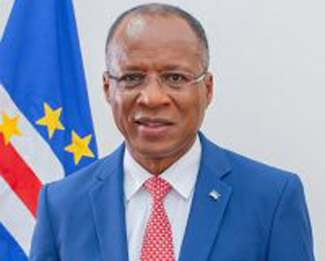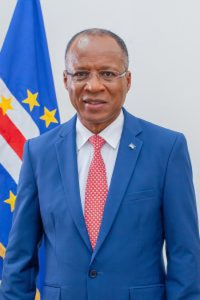
Cabo Verde on the way to becoming an air, maritime and digital hub
- Geneva (July 15) Cabo Verde is transforming adversities into solutions, developing its role as a hub for air and maritime transport as well as for a digital economy.
- Annegret Mathari, Geneva
The sun and wind, which long symbolized drought, today represent sources of renewable energy for Cabo Verde. The sea, which once symbolized emigration, today represents tourism, desalinated water, seafood exports, aquaculture and canning industry products. There is a place for R&D in the blue economy with the potential both for exploiting the blue economy and for clean energy production.
“Cabo Verde is resilience, overcoming and transforming adversities into solutions”, Prime Minister Ulisses Correia e Silva said at the opening session of the General Assembly of the World Intellectual Property Organization (WPO) in Geneva on July 15. Cabo Verde is a nation that has existed for more than five and a half centuries. The country has gone from being a colony to becoming an independent country, from a one-party regime to a constitutional liberal democracy.
“From being a LDC [least developed country], we have reached the status of a MIC [middle income country] and are legitimately aiming for sustainable development,” Correia e Silva said. “The geographical location that used to position us far from the world today positions Cabo Verde as a tourism platform and with high potential as an air, maritime and digital hub, and for maritime cooperative safety in the Atlantic.”
Expanding tourism
Cabo Verde is interested in the African tourism market. Already before the covid-19 pandemic, the country had started to invest in its airline, but the pandemic interrupted this development. According to Correia e Silva there is a need for more flights to and from African countries, and Cabo Verde is an important air hub for intercontinental flights, between Africa and Europe and between Africa and the Americas. “We are a well located country”, Cabo Verde’s prime minister told Diva International. “It is close to the African continent, to Europe and to Brazil.” Before the covid-19 pandemic, nearly 800,000 tourists travelled to the country each year.
WIPO is an important partner for Cabo Verde, for the country is interested in developing the field of intellectual property and in opening international markets. The country has unique products like the wine produced on Fogo Island close to the volcano. The coffee produced on Fogo Island is being sold today in Starbucks coffee shops, Correia e Silva told Diva international. Intellectual property also plays an important role in the country’s handicrafts and in copyrights for its music.
Covid-19 has accelerated development of ways of realizing the potential for innovation and information and communication technology. For his country, the genius of human creativity is an essential basis for sustainable development, Correia e Silva emphasized.
According to the prime minister, Cabo Verde is interesting for foreign investors, especially from the Diaspora, whose members live especially in the United States. There are some 500,000 inhabitants today on the Cabo Verde Islands. More than twice as many people are living in the Diaspora, half a million of them in the United States, others in Europe and on the African continent.
Increasing trade with African markets
When in Geneva, Correia e Silva also visited the World Trade Organization (WTO). His country is developing internet platforms for a more efficient management of foreign trade. Another topic discussed at the WTO was the African free trade market, an initiative of the African Union that is already ratified. One of the objectives of Cabo Verde is better integration into African markets. According to Correia e Silva, Cabo Verde’s trade with the African continent today accounts for only 2 percent of its foreign trade. To increase this figure, the prime minister said, there is a need to put in place an adequate system of maritime transport.
Cabo Verde is also becoming a digital hub. There are many technology start-ups in the country, which offers a favourable ecosystem for e-commerce, technically and fiscally. Cabo Verde is also attractive for digital nomads.
Renewable energy
An important topic of Correia e Silva’s discussions of in Geneva was renewable energy. Cabo Verde has a strong program for energy transition.
Today renewable energy, mainly solar, covers around 20 percent of the country’s energy needs, and it is expected to increase to 50 per cent by 2030. Cabo Verde is also promoting electric mobility and has started to procure electric cars for public transport. By 2040, the country hopes to be using only electric vehicles. According to Correia e Silva, this is not only a climate change matter, but also an economic one.






